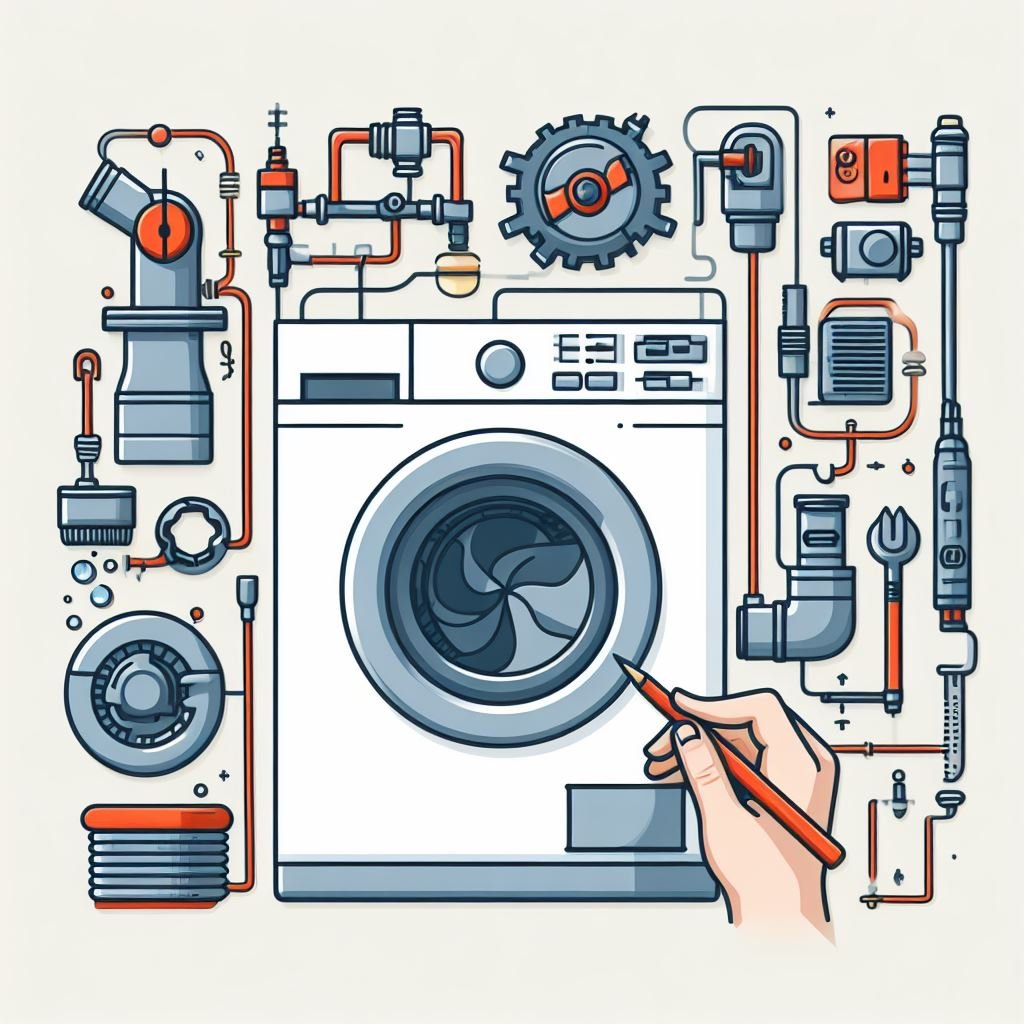If you own an LG washing machine, you’re probably aware of the convenience and efficiency these machines offer. However, like any appliance, they’re not immune to problems. One of the most common issues is with the drain pump. Before you pick up the phone to call a repair technician, you might wonder, “How do I test my LG washing machine drain pump?” Knowing how to test the drain pump can save you both time and money.
Why Test the Drain Pump?
- Early Diagnosis: Identifying problems early can prevent more extensive damage.
- Cost Savings: Knowing what’s wrong can avoid unnecessary service calls.
- Time Efficiency: You don’t have to wait for a technician if you can fix minor issues yourself.
Signs of a Faulty Drain Pump
- Water not draining properly
- Machine making loud, unusual noises during the drain cycle
- Error codes related to draining issues on the control panel
Tools You Will Need

To test your LG washing machine drain pump, you’ll need a few tools.
- Multimeter
- Screwdriver
- Towels or rags
- Bucket
Steps to Test Your LG Washing Machine Drain Pump

Step 1: Disconnect Power and Water Supply
Safety should always be your first concern. Turn off and unplug your washing machine, and disconnect the water supply.
Step 2: Locate the Drain Pump
Usually, the drain pump is located at the bottom of the machine. Refer to your LG washing machine’s manual to be certain.
Step 3: Access the Pump
Use your screwdriver to remove any screws securing the access panel. Be prepared with towels or a bucket to catch any water that may spill.
Step 4: Identify and Disconnect Wires
The drain pump is usually connected by two or more wires. Take note of their placement before disconnecting them.
Step 5: Use a Multimeter
Set your multimeter to the ohms setting. A functional pump should read between 20 and 30 ohms. If the reading is zero or infinite, the pump is likely faulty.
| Multimeter Reading | Condition of Drain Pump |
|---|---|
| 20-30 ohms | Likely Functional |
| Zero or Infinite | Likely Faulty |
Step 6: Physical Inspection
Also, look for any visible signs of wear or damage like cracks or burns. If you spot any, you’ll probably need to replace the pump.
Step 7: Reassemble and Test
After the tests, reconnect everything and run a drain cycle to check if the problem persists.
When to Call a Professional
- Complex electrical issues
- Structural damage to the pump
- Inability to determine the issue even after testing
If you find yourself in any of these situations, it’s probably best to consult a professional for an expert diagnosis and repair.
Other Drainage Issues to Consider
Your LG washing machine drain pump isn’t the only potential culprit for drainage issues. Blocked hoses or kinked pipes can also prevent effective draining. Keep these in mind if your drain pump appears functional but you’re still experiencing issues.
FAQs: How Do I Test My LG Washing Machine Drain Pump?
-
Can I perform the test without a multimeter?
While a multimeter is the most accurate way to test, visual and auditory cues may also indicate pump condition. -
How often should I test the drain pump?
Regular maintenance is good, but frequent testing isn’t usually necessary unless you’re experiencing problems. -
Is it cost-effective to replace the drain pump myself?
If you’re comfortable with DIY tasks, you can save labor costs. However, if you’re unsure, professional help is advised.
By understanding how to test your LG washing machine drain pump, you can take an active role in the maintenance of your appliance. This knowledge can not only save you money but also provide you with the confidence to tackle minor issues on your own. Keep in mind that for major problems or uncertainties, professional help is just a call away.
